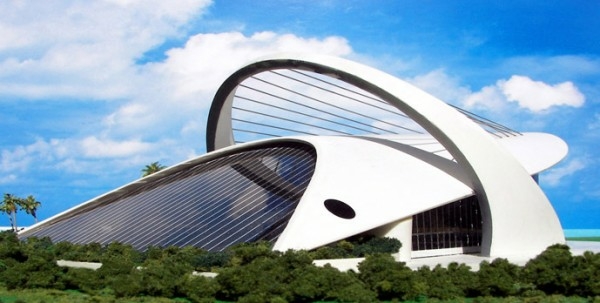In the lecture of week 4 our group watched the documentary of Jacque Fresco ‘Paradise or oblivion’. Although I believe this is a refreshing idea, I believe it is an utopian idea that is not feasible.
Jacque Fresco states that scarcity of resources is the foundation of social inequality and instability. In his utopian vision, where money does no longer exist, there is an abundance of resources so anyone is able to meet their needs. But is an abundance of resources possible, when the global population keeps rising? Does abundance in resources mean we will consume less when wealth expressed in money has been eliminated? Or will we consume more than we already do, compared to the average global consumption rate when everything is available?
My first problem with Jacque Fresco’s story is that I do not believe that eliminating wealth expression in monetary value leads to consuming only what you need. For example, people buy more food than they need which goes to waste in the refrigerator. This is even food we paid for. What happens if it is free? The strongest motivation is self-interest, people and even nature seek ways to cut corners so they can individually excel. Jacque Fresco could argue that this is incorporated in our culture, but what if it is natures ‘nature’ to be like this because we have a survival instinct?
My second problem is that Jacque Fresco states he wants to build new cities which completely rely on renewable energy systems. But to build renewable energy systems you need metals. The online course ‘Wheel of metals: Urban mines for a circular economy’ states that to transfer to a system of 80% of renewable energy in 2050 we need 50.000 times more of CdTe and other elements which are essential for these technologies. It is not possible to scale up to this amount seen the metal elements usage. Renewable energy technologies have to be reinvented and based on more common available materials.
Metals are dwindling in quality and quantity since ore grades are deteriorating and easy accessible ores are becoming scares. We have to put in more effort to obtain the same amount of metals, making it economically inefficient at one point. Even in a world without money, it means you have to use more resources to obtain resources that have less high quality. In short, it is inefficient.
Even if you would not extract metals for technology out of the ground, but from urban mines through using metals in existing constructions there are still many problems. For a circular economy you need materials that do not down-cycle. At the moment you always lose some and in practice circular economy for metals is not possible yet. Material engineers have always been focused on maximizing performance, not on maximizing recyclability. It is expected that it will take a century for alloys to be redesigned for a circular economy, where elements do not influence each other when being recaptured. Although the aluminum industry states that aluminum is suitable for recycling, for a circular economy you actually want each element in alloys back, which is hard since elements that are mixed together now often share the same properties.
In short, the utopian of Jacque Fresco relies on technology and renewable energy systems that need resources which are not abundant at the moment. Technologies and materials need to be reinvented so we can close loops. Off course, you also have the bio cycle which contains renewable resources. If we believe in Blue Economy there are renewable resources available we do not perceive as resources yet. But even if they become visible how do we use the land to cultivate these when we need the land to grow food for a rising population.
In my eyes the first step would therefore be to control population size and for society to consume less. This is possible by creating sharing systems, reusing or refurbishing. By extending the lifespan, we not only consume less energy, but we also give material science the time to come up with materials which are suitable for a circular economy. Maybe for people to consume less you even need a threat for scarcity. Why would you consume less if everything is abundance?
